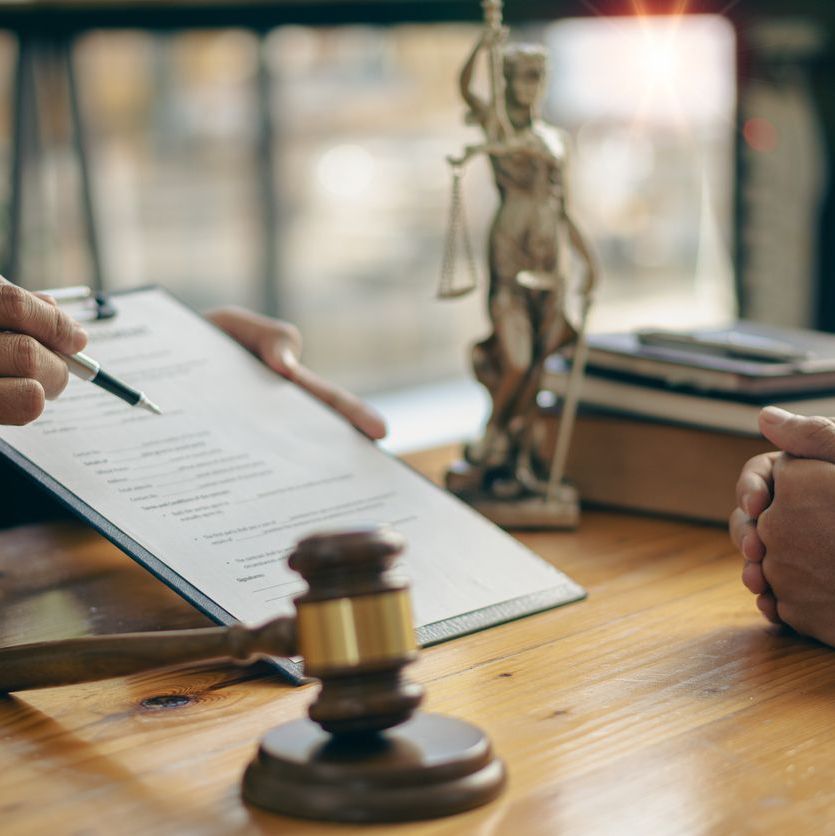Navigating Habeas Corpus with the Help of an Experienced Attorney
Navigating Habeas Corpus with the Help of an Experienced Attorney
Blog Article
Recognizing the Role of a Post-Conviction Lawyer in Seeking Justice After a Criminal Conviction
In the complex landscape of post-conviction lawful process, the duty of a post-conviction legal representative is crucial in browsing the path to justice after a criminal conviction. Beyond the confines of a test, these lawful specialists participate in a diverse method focused on discovering brand-new evidence, difficult legal errors, and advocating for their customers' civil liberties. The ins and outs of post-conviction work call for a mix of lawful acumen, investigative skills, and critical assuming to unwind the complexities of an instance and seek methods that may have been forgotten or underexplored. As the quest of justice prolongs beyond the confines of first proceedings, the duty of a post-conviction attorney emerges as a sign of expect those seeking to fix injustices and reclaim their civil liberties within the legal system.
Post-Conviction Legal representative's Investigatory Job
Post-conviction attorneys participate in careful investigatory work to reveal brand-new evidence, step-by-step mistakes, or transgression that might potentially lead to rescinding a sentence. This investigative stage is vital in the post-conviction process as it aims to determine any type of overlooked information or legal errors that may have influenced the result of the initial test. Post-conviction lawyers explore instance data, witness testimonies, and lawful documentation with a fine-tooth comb, looking for any type of discrepancies or abnormalities that could be grounds for appeal.
Via complete examination, post-conviction lawyers aim to lose light on possible injustices that may have happened throughout the initial trial. By inspecting every element of the lawful process, post-conviction attorneys work tirelessly to discover any kind of factors that may have influenced the decision.
Crafting Appeals and Petitions
In the search of justice after a sentence, experienced lawyers thoroughly craft allures and applications to present compelling arguments for the reconsideration of legal decisions. Crafting appeals and petitions needs a deep understanding of the legal system, interest to detail, and calculated thinking. Post-conviction attorneys examine test documents, determine prospective errors or violations of civil liberties, and establish lawful arguments to challenge the conviction or sentence.
When crafting a charm, legal representatives concentrate on highlighting lawful mistakes that may have impacted the result of the case. They research case law, laws, and lawful precedents to support their arguments. Petitions, on the various other hand, might include providing new proof that was not available throughout the trial or showing adjustments in the legislation that call for a review of the conviction.
Moreover, post-conviction lawyers have to stick to rigorous step-by-step guidelines and deadlines when submitting charms and petitions. They must offer their disagreements clearly and persuasively to encourage the court to give relief to their customers. With meticulous crafting of allures and requests, post-conviction lawyers make every effort to protect justice for individuals that have been wrongfully convicted or unjustly sentenced.

Seeking Post-Conviction Relief
Post-conviction alleviation incorporates a range of legal systems designed to test the credibility of a conviction or sentence. Post-conviction legal representatives play a crucial duty in navigating these complex treatments, guaranteeing that all legal alternatives are checked out to rectify oppressions that may have taken place during the test or sentencing phase.
One common type of post-conviction alleviation is filing a request for post-conviction alleviation, usually based on cases of ineffective help of advise, prosecutorial transgression, newly discovered evidence, or constitutional infractions. Experienced post-conviction legal representatives have the abilities and knowledge required to determine feasible lawful insurance claims, perform examinations, and existing engaging arguments to secure relief for their clients.
Utilizing Forensic Evidence
When testing a sentence or sentence, the critical application of forensic proof can be an effective device in post-conviction lawful process. Forensic evidence incorporates a vast array of clinical strategies made use of to helpful site examine criminal offenses and establish truths in court. Post-conviction lawyers can leverage forensic proof to test the credibility of convictions by presenting new clinical findings that were not offered during the initial test.

Participating In Sentence Adjustments
Post-conviction legal representatives might discover the opportunity of sentence alterations as a lawful method to resolve out of proportion or unjustified sentences handed down in criminal situations. Sentence adjustments include seeking changes to the terms of a defendant's sentence after a sentence has actually taken area. These alterations can consist of minimizing the length of a sentence, altering the sort of penalty enforced, or discovering alternate sentencing options.
Post-conviction lawyers can pursue sentence adjustments via numerous legal mechanisms, such as submitting activities for sentence decrease, appealing for compassionate release, or bargaining appeal offers for decreased sentences. They must meticulously assess the scenarios of the situation, assess the legal grounds for looking for an alteration, and present compelling debates to the court supporting the demand for a modified sentence.
Participating in sentence alterations needs a complete understanding of criminal law, sentencing standards, and the certain procedures associated with seeking post-conviction relief. Post-conviction attorneys play an important role in promoting for fair and simply end results by tough sentences that are unduly severe or do not straighten with the principles of justice.
Verdict
To conclude, the role of a post-conviction attorney is crucial in looking for justice after a criminal conviction. With investigatory job, crafting charms and petitions, going after post-conviction alleviation, utilizing forensic proof, and taking part in sentence adjustments, these lawyers play an essential role in promoting for their customers and making certain that their civil liberties are maintained within the criminal justice system. Their devotion and experience are vital in browsing the intricacies of post-conviction proceedings and accomplishing a reasonable outcome for individuals dealing with criminal convictions.
Report this page